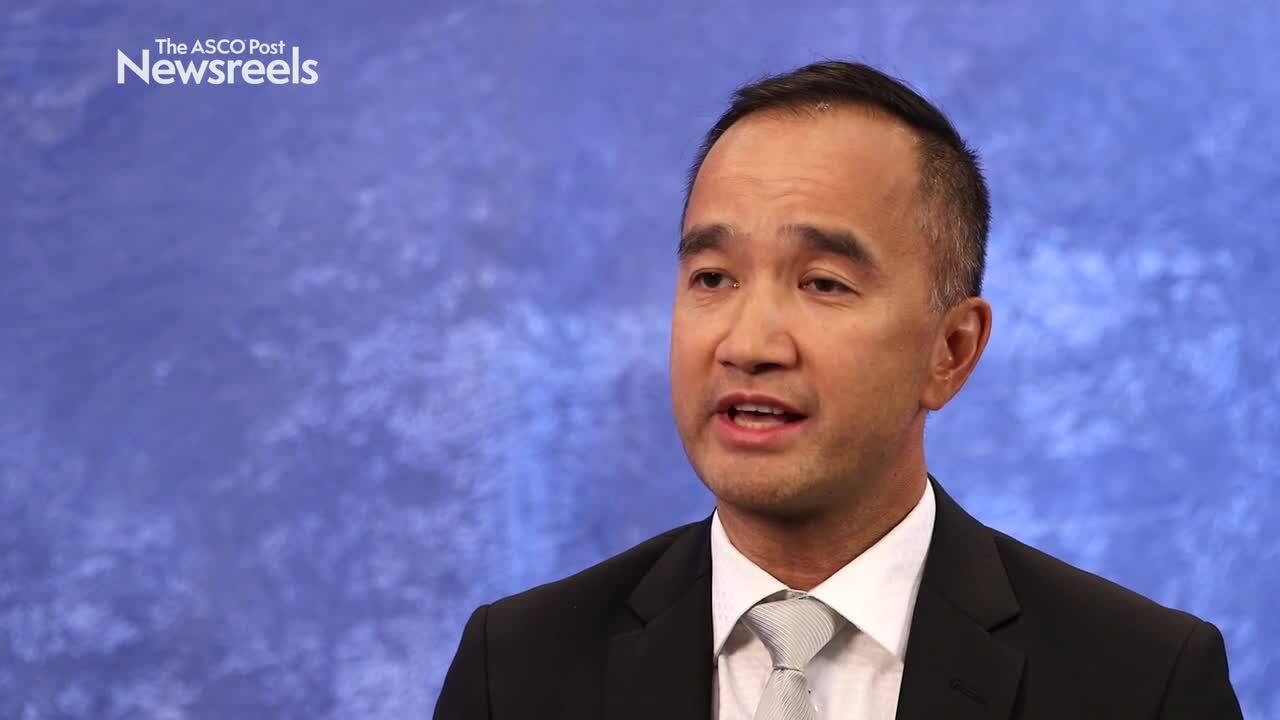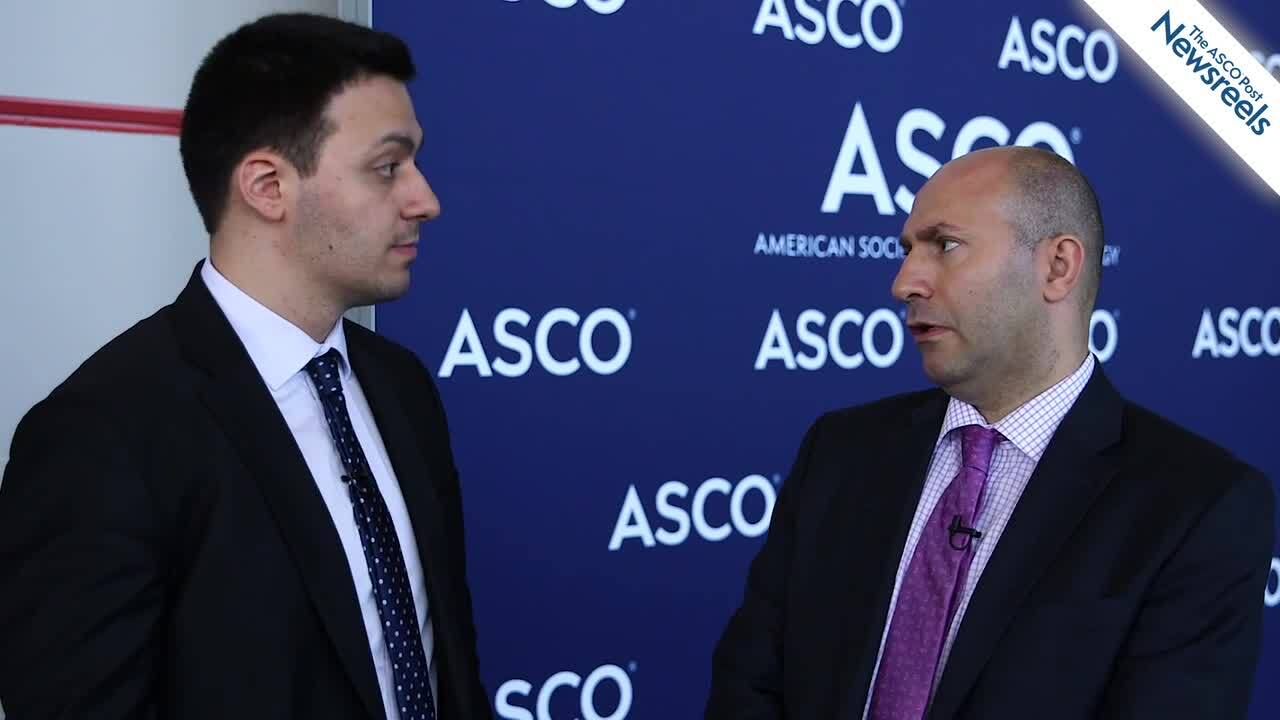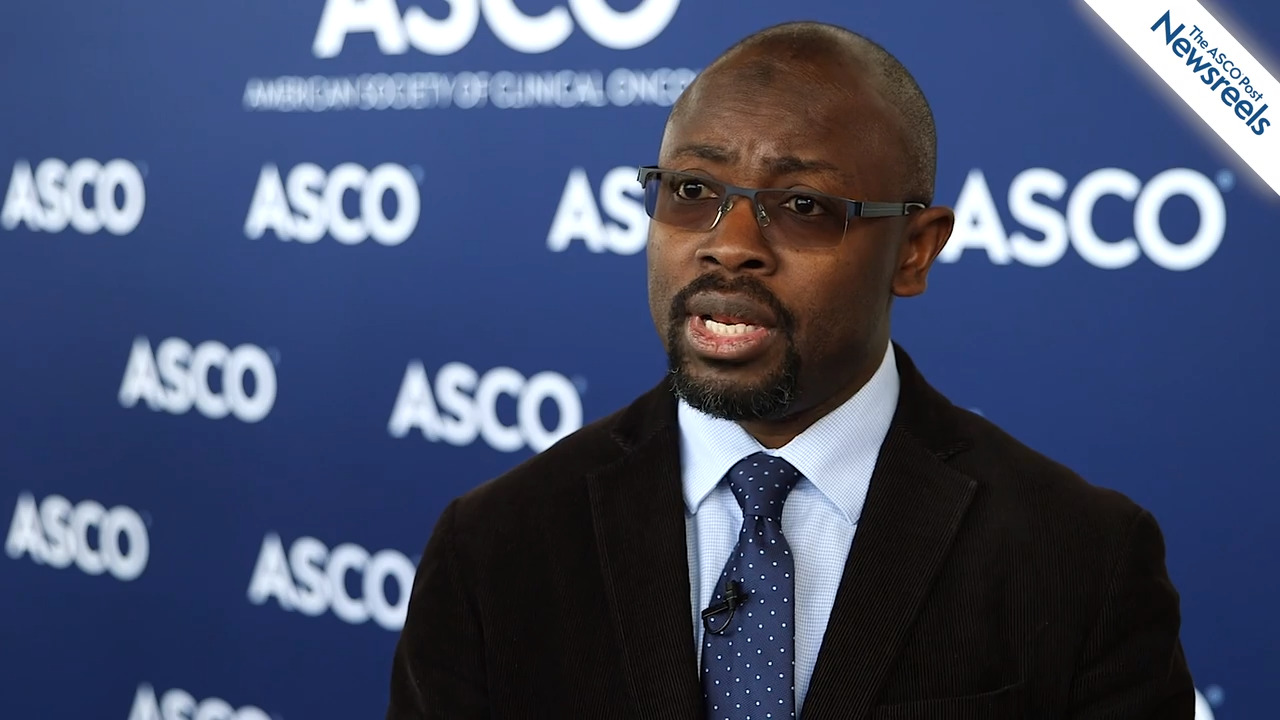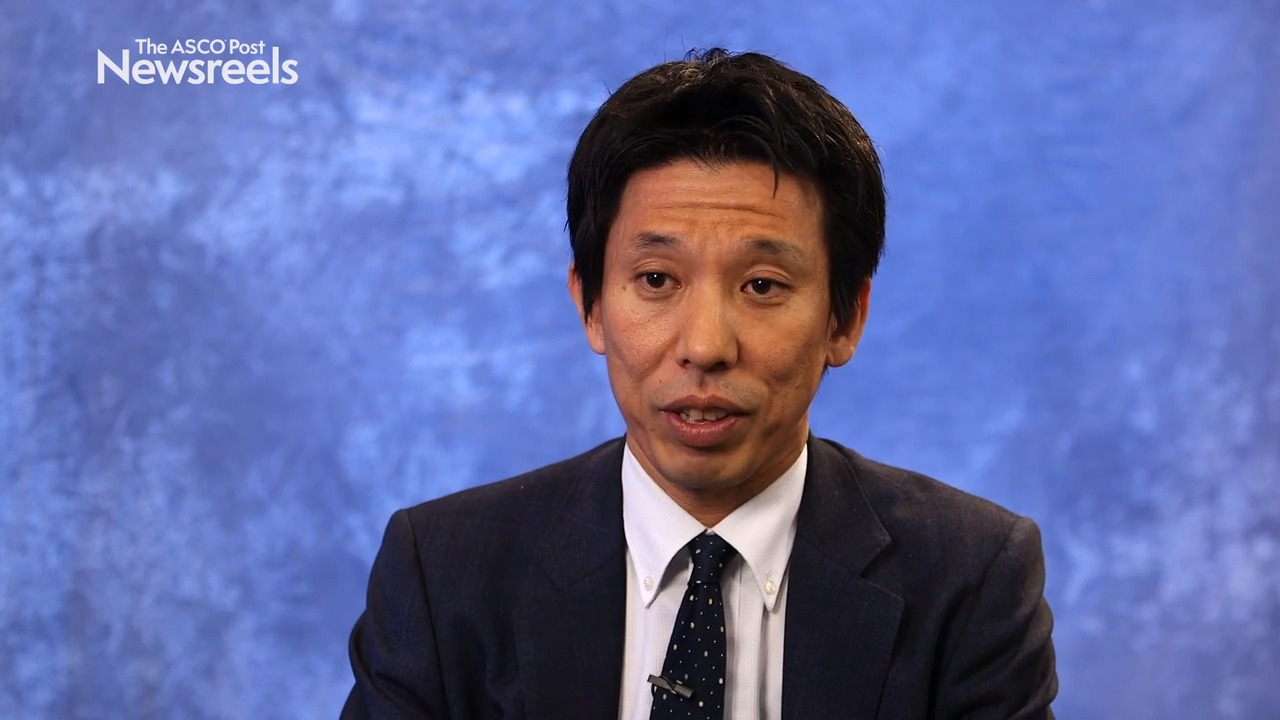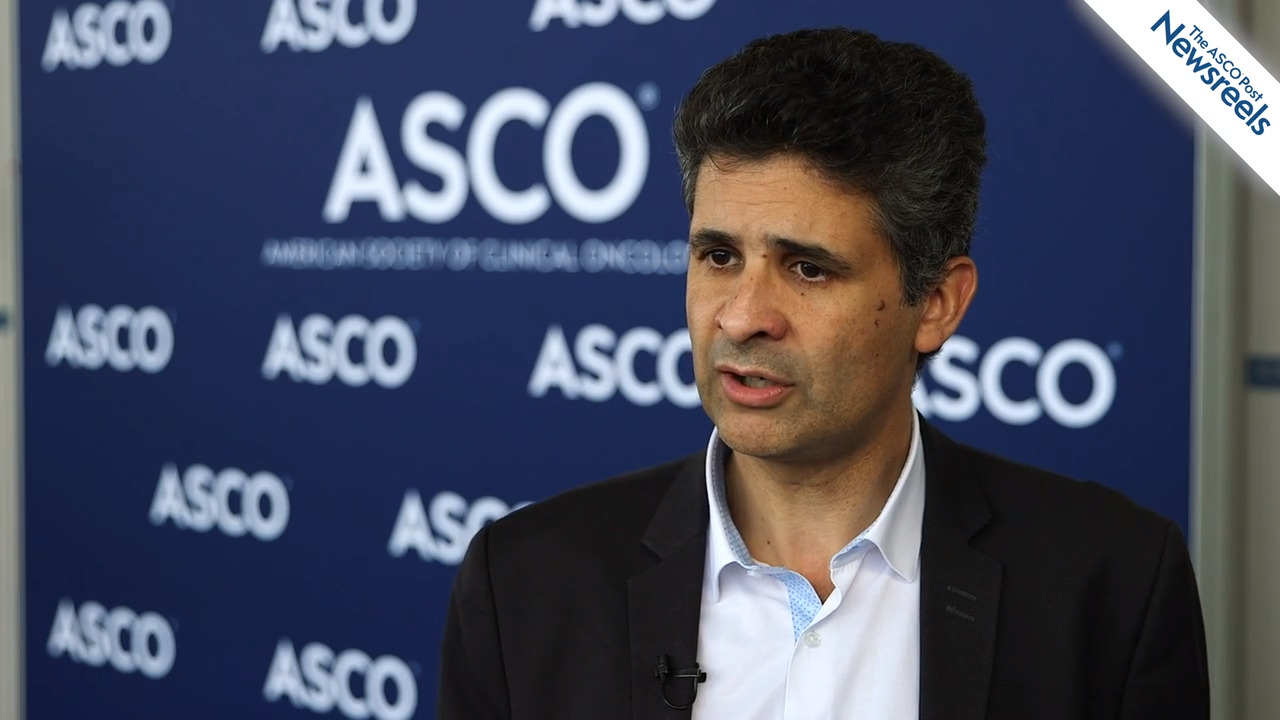Sara A. Hurvitz, MD, on HER2-Positive Breast Cancer: KRISTINE Trial on Neoadjuvant Trastuzumab, Pertuzumab, and Chemotherapy
2019 ASCO Annual Meeting
Sara A. Hurvitz, MD, of the David Geffen School of Medicine, University of California Los Angeles, discusses 3-year outcomes from the first phase III study to test a non-conventional regimen for the neoadjuvant and adjuvant treatment of HER2-positive breast cancer (Abstract 500).
Kim N. Chi, MD, of BC Cancer, discusses updated results from a phase II study of cabazitaxel vs abiraterone or enzalutamide in patients with poor-prognosis metastatic castration-resistant prostate cancer (Abstract 5003).
Toni K. Choueiri, MD, and Ziad Bakouny, MD, both of Dana-Farber Cancer Institute, discuss a retrospective review of genomically profiled patients with sarcomatoid/rhabdoid renal cell cancer who were found to have better outcomes with immune checkpoint inhibitors and to harbor mutations associated with poor prognosis (Abstract 4514).
Taofeek Kunle Owonikoko, MD, PhD, of Emory University, discusses the findings of his phase II study, which assessed the efficacy of combined immune checkpoint inhibitors with or without radiation in relapsed small cell lung cancer (Abstract 8515).
Hirotsugu Kenmotsu, MD, of Shizuoka Cancer Center, discusses the phase III JIPANG trial findings, which showed that pemetrexed plus cisplatin was not superior to vinorelbine plus cisplatin in terms of recurrence-free survival for patients with completely resected nonsquamous non–small cell lung cancer (Abstract 8501).
Karim Fizazi, MD, PhD, of the Institut Gustave Roussy, University of Paris-Sud, discusses study findings showing that not only does darolutamide prolong metastasis-free survival, it maintains quality of life as well as delays worsening of pain and disease-related symptoms compared with placebo for patients with nonmetastatic castrate-resistant prostate cancer (Abstract 5000).
